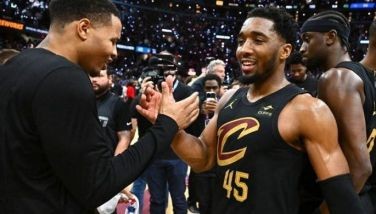Money as motivator
Millionaire athletes misbehaving. Loyal audiences for collegiate sports. Amateur standouts who can’t make a successful transition to the pros. Underperforming basketball stars who only seem to play well come contract negotiation season. There has been no research-based explanation linking these surprising phenomena. Until now.
In the past hundred years, the eternal debate has been whether or not greater compensation (meaning getting paid big bucks for essentially the same job) results in greater performance. Though there are certain environments wherein this is true (such as some – not all – sales positions), the fact of the matter is everywhere, whether it be the workplace or the playing court, a bigger salary does not mean bigger output. If that were true, then certain basketball players would be registering career highs every season.
On the contrary, data gathered from the last four decades points to the opposite result. Employees (including basketball players and other athletes) show only a short-term spike in performance when given big rewards. In fact, on the whole, the result of contracts packed with bonuses is a long-term dip in performance.
In sports, there are many reasons for this. First, players will play the game, no matter what. They love it. Even Michael Jordan had a “love of the game” clause in his contract. There is a psychological phenomenon that, when someone gets paid for something he or she would do for free, they do it less. That explains why many, many Olympic greats don’t turn pro. That was not the reason they played. Part of it is a certain loss of control, since the one calling the shots is now the one paying for the output, no longer the athlete. Secondly, performance is now a requirement, not something done freely. Compliance is now conditional to compensation.
Beyond that, once a bonus is guaranteed, there is no need to push one’s self. This applies to sports and work. In schools, top students are exempted from final exams. In other words, they literally stop studying. The same principle applies to teams that are seeded straight to the finals of a tournament. The layoff is actually counter-productive, and they often lose their edge.
Researchers Richard Ryan and Edward Deci, who have been at this since the 1970’s and 1960’s, respectively, have discovered that the traditionally dream isn’t what it’s cracked up to be. They studied groups of graduates from the University of Rochester, and found that students who attained their profit goals at work weren’t any happier, and in fact had higher anxiety, depression and other negative indicators.
This is where Deci, Ryan and other researchers have come upon what is called different things, but for our purposes is external motivation. Other research in the US shows that a person’s not being involved in decisions affecting his work is the number one cause of disengagement and underproductivity in the workplace. Again, this also translates onto the playing field. Money does carry weight, it’s true, but it is not a determinant. In many experiments, higher compensation actually caused a disconnect between the person and the task.
This is explained by what is called the Sawyer Effect first put forth by iconic American writer Mark Twain, “Work consists of whatever a body is OBLIGED to do, and that Play consists of whatever a body is not obliged to do.” In other words, once play becomes a job, it is less attractive. Deci and Ryan did an experiment. They took two groups of volunteers and asked them to put together a three-dimensional puzzle, and supplied them magazines to read when they were done. They told the first group that they were being paid. They told the second group that they were just being observed. When it was announced that time was up, the participants in the first group put the puzzle down and started reading. Those in the second group kept right on working the puzzle. It was not a task, it was play.
In his book “Drive: The Surprising Truth About What Motivates Us”, Daniel Pink distills internal motivation or true motivation down to three factors, and calls them autonomy, mastery and purpose. Briefly, he says that what makes people do well often against great challenges and odds is having the freedom (within certain parameters) to do things the way they wanted, the thrill of getting better at something despite fatigue and repetitiveness, and the reason that resonates with them. If coaches can tap into that bottomless reservoir, we will see record-setting performances regularly. Being part of a team you actually like is a big factor. Having a higher goal (like winning a championship) makes players take pay cuts.
It’s not about the money, no matter what anyone says. They just think it is.
* * *
Follow this writer on Twitter @BillVelasco.
- Latest
- Trending



























